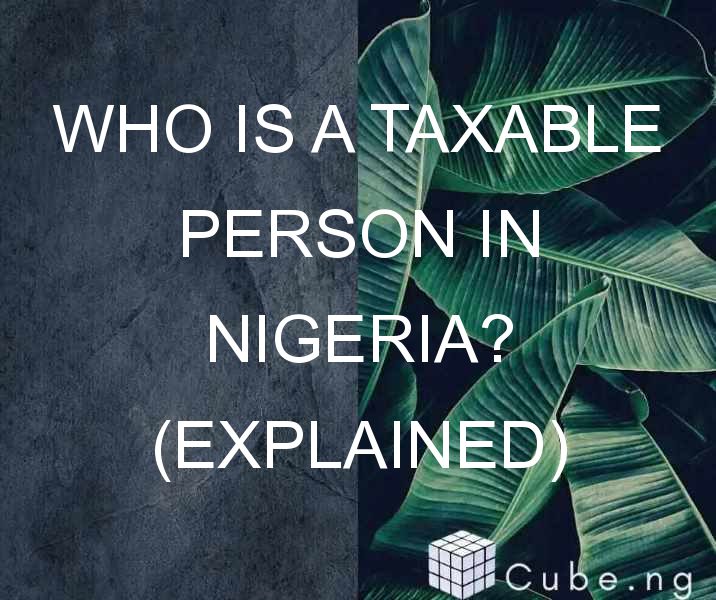Taxes are a crucial part of any economy, including Nigeria's. Taxation is an essential function of the government that is used to raise revenue to fund public goods and services.
However, not everyone is required to pay taxes in Nigeria. In this article, we will explore who a taxable person is in Nigeria.
Table of Contents
What is a taxable person?
A taxable person is an individual or entity that is required by law to pay taxes. In Nigeria, taxable persons are required to pay taxes on their income, profits, and capital gains. The Federal Inland Revenue Service (FIRS) is responsible for collecting taxes in Nigeria. They have the power to assess, collect and enforce payment of taxes.
Who is required to pay taxes in Nigeria?
In Nigeria, every individual or company that earns income is required to pay taxes. This includes individuals who earn salaries or wages, business owners, and self-employed individuals. Companies are also required to pay taxes on their profits. It is important to note that even if you are not a Nigerian citizen, if you earn income in Nigeria, you are still required to pay taxes.
Types of taxes in Nigeria
There are various types of taxes in Nigeria. The most common include:
Personal Income Tax
Personal income tax is a tax on an individual's income. This applies to all individuals who earn income in Nigeria, whether from employment, business or investments.
Company Income Tax
Company income tax is a tax on the profits of companies operating in Nigeria. This includes companies that are resident in Nigeria or those that have a permanent establishment in Nigeria.
Value Added Tax
Value Added Tax (VAT) is a tax on the supply of goods and services. It is charged at a rate of 7.5% on most goods and services in Nigeria.
Education Tax
Education tax is a tax on the profits of companies operating in Nigeria. The funds generated from education tax are used to fund educational infrastructure and development in Nigeria.
Taxable income
Taxable income is the income that is subject to tax. In Nigeria, taxable income includes income from all sources, including salaries, wages, profits, and capital gains. Deductions are allowed to reduce the taxable income, such as expenses incurred in the course of earning the income.
Tax identification number
Every taxable person in Nigeria is required to obtain a Tax Identification Number (TIN) from the FIRS. The TIN is a unique number that is used to identify taxpayers and is required for all tax-related transactions.
Penalties for non-compliance
Non-compliance with tax laws in Nigeria can result in penalties and fines. The FIRS has the power to impose penalties for failure to file tax returns, late payment of taxes, and failure to register for taxes. The penalties can be significant and can include interest on the outstanding tax liability.
Conclusion
In summary, a taxable person in Nigeria is anyone who earns income and is required to pay taxes. There are various types of taxes in Nigeria, including personal income tax, company income tax, value-added tax, and education tax. It is important for every taxable person to obtain a Tax Identification Number and comply with tax laws to avoid penalties and fines. By paying taxes, we contribute to the development of Nigeria and the provision of public goods and services.




